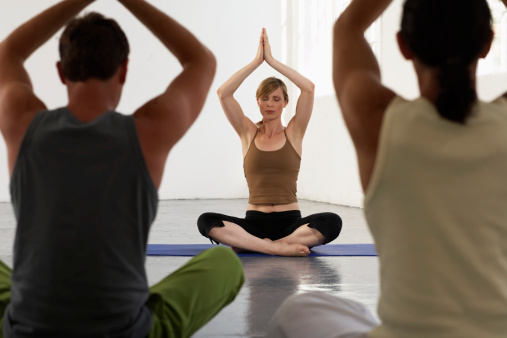Do you often find yourself overwhelmed by anxiety or weighed down by the heavy burden of depression? If so, you’re not alone. These mental health challenges affect millions of people worldwide. While traditional psychotherapy has long been a go-to solution, an emerging approach called yoga psychotherapy is gaining recognition for its potential to alleviate symptoms and foster holistic well-being. In this blog, we’ll explore the transformative power of yoga psychotherapy and how it can assist in managing anxiety and depression.
- Understanding Yoga Psychotherapy:
Yoga psychotherapy integrates the principles of both yoga and traditional psychotherapy to create a unique therapeutic experience. It combines research based mindful movement, breathing exercises, meditation, and talk therapy to promote self-awareness, emotional balance, and overall mental health.
- Cultivating Mind-Body Connection:
One of the core tenets of yoga psychotherapy is the emphasis on the mind-body connection. By incorporating physical postures (asanas), yoga helps release tension, promotes relaxation, and supports the body’s natural healing processes. This mind-body integration has a profound impact on trauma recovery, anxiety and depression symptoms.
- Breathwork for Anxiety Reduction:
Conscious breathing techniques (pranayama) play a vital role in yoga psychotherapy. Deep, intentional breathing helps calm the nervous system, reduces stress, and enhances emotional well-being. By focusing on the breath, individuals can gain better control over anxiety-related symptoms and experience a sense of inner peace. We teach our clients a variety of breathwork techniques that can help you to achieve the emotional and mental states that you desire.
- Meditation for Emotional Regulation:
Regular meditation practice is an integral component of yoga psychotherapy. Mindfulness meditation cultivates present-moment awareness, allowing individuals to observe their thoughts and emotions without judgement. This practice enhances emotional regulation, reduces anxiety, and improves overall mental clarity. In a space of clarity you are better able to align with your values and identify action steps towards achieving your goals.
- The Role of Talk Therapy:
In yoga psychotherapy, talk therapy is combined with physical and mindfulness practices. This integration provides individuals with a safe space to explore their emotions, identify thought patterns, and gain insight into the root causes of anxiety and depression. Through compassionate guidance, individuals can develop healthier coping strategies and create positive shifts in their lives.
- Psychotherapy in Dallas:
If you’re seeking professional support in managing anxiety and depression, consider exploring yoga psychotherapy at AUM Integral Wellness, a leading psychotherapy center in Dallas. Our experienced therapists integrate yoga, meditation, and talk therapy to address the unique needs of each individual. We provide a compassionate and supportive environment where healing can unfold.
Conclusion:
Yoga psychotherapy in Dallas offers a comprehensive approach to managing anxiety and depression. By incorporating physical movement, breathwork, meditation, and talk therapy, individuals can cultivate self-awareness, reduce anxiety symptoms, and experience greater emotional well-being. If you’re ready to embark on this transformative journey, reach out to AUM Integral Wellness in Dallas, where our dedicated team is here to support your path to healing and wholeness. For more information, you can leverage our free phone consultations to determine what will work best for you.


Recent Comments